Health on the Plate

Serving Up a School-Home Connection
Manhasset CASA continues our School-Home Connection in collaboration with Manhasset Secondary School Health Teachers Jasmine Ostrom (Grade 8) and Lauren Sadeh (Grade 10):
8th Grade Health:
Students are learning about the importance of trust and setting boundaries in a healthy relationship. Boundaries help define what's important to you and help you feel safe. Students will learn that it is really important for partners to talk about and be aware of each other's boundaries, and to be able to trust that the other person won't cross or ignore them.
Today's adolescents have access to more information than ever before, and are inundated with often contradictory messages about healthy relationships. They're accustomed to sifting through these messages to consider what is relevant to them, and parents and caregivers are valuable to support them in this challenge.
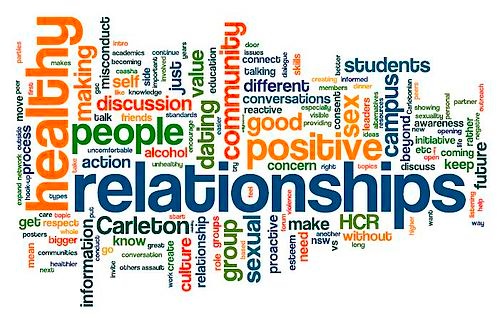
Health at the Dinner Table Discussion & CONVERSATION STARTERS:
- What values do you think are important in friendships? What values do you think are important in dating relationships?
- What does it mean to stand up for yourself? When you stand up for yourself, do you think you are being strong or pushy? Why?
- What's a healthy way to argue? What's an unhealthy way to argue?
- What should you do if someone you're dating threatens you? What if someone you are dating tells you to keep quiet and not tell anyone, even though you know it is wrong?
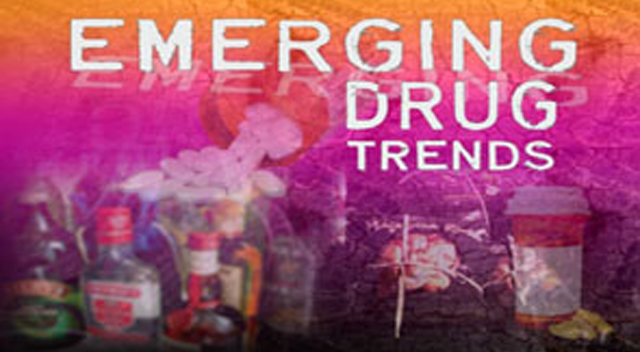 10th Grade Health: S
tudents are learning about the dangers of e-cigarettes, vaping and synthetic marijuana. Recent drug trends show a decrease in the use of traditional cigarettes and a tremendous increase in the use of electronic cigarettes and vapes. In fact, the use of e-cigarettes among high school students has increased by 900% from 2011 to 2015. Synthetic marijuana has also been a dangerously growing trend among high school students. Students are resorting to this dangerous man made version of marijuana because it has been shown to be easily accessible in "corner stores" and gas stations, bought without any age restrictions and does not show up on drug tests. Classes will also discuss the physical, mental and social implications of these drugs. 10th Grade Health: S
tudents are learning about the dangers of e-cigarettes, vaping and synthetic marijuana. Recent drug trends show a decrease in the use of traditional cigarettes and a tremendous increase in the use of electronic cigarettes and vapes. In fact, the use of e-cigarettes among high school students has increased by 900% from 2011 to 2015. Synthetic marijuana has also been a dangerously growing trend among high school students. Students are resorting to this dangerous man made version of marijuana because it has been shown to be easily accessible in "corner stores" and gas stations, bought without any age restrictions and does not show up on drug tests. Classes will also discuss the physical, mental and social implications of these drugs.
Click here
to read an article recently provided to students regarding the dangers of vaping.
|
|
Surviving the Party
Student Prevention Program for Grades 9-12
|
Local Support for Generation Rx Campaign
Cards, Carts & More!
In 2015 more than 52,000 people died from a drug overdose; of those, 33,091 (63.1 percent) involved a prescription or illicit opioid. Since 2000, more than 300,000 Americans have lost their lives to an opioid overdose (Centers for Disease Control 12.16.16). According to the 2013 National Survey on Drug Use and Health, nearly 70% of those who misuse prescription drugs get them from family members or friends, often from the medicine cabinet.
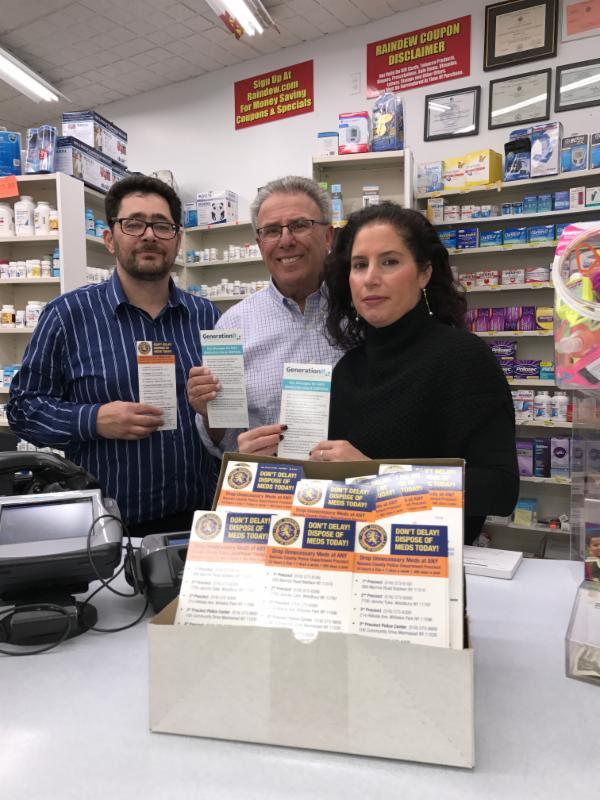
Manhasset CASA's Safe Medication Practices for Life Generation Rx Grant Initiative strives to increase awareness about safe medication use and encourage residents to dispose of unnecessary medications kept in the home.
Working with the Nassau County Police Department, Raindew Family Centers and Pharmacy, Maclellan Pharmacy and Manhasset Park Drug as well as other local businesses such as Daniel Gale Realty, Manhasset CASA has made Generation Rx Fact Cards available across the community as well as Nassau County.
The fact card highlights key safety messages as well as all Nassau County Precinct Disposal Box locations where residents can drop unnecessary medications 24 hours a day.
Nassau County Precinct Disposal Boxes accepted items include:
prescriptions, prescription patches, prescription medications, prescription ointments, over the counter medications, vitamins, sample medications and medications for pets. Please do not deposit needles, sharps, aerosol cans, thermometers, ointments (liquid or lotion), hydrogen peroxide, inhalers, medication from businesses and bloody or infectious waste.
Manhasset CASA's Generation Rx program will also advertise in Anton Newspapers and on local shopping center carts to encourage residents to engage in safe medicine practices and disposal in an effort to reduce prescription drug misuse.
|
Monitoring the Future Survey: National Youth Trends
Bach Harrison Survey: Manhasset Youth Trends
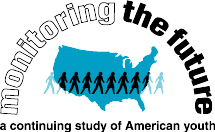 The National Institutes of Health (NIH) released the 2016 Monitoring the Future (MTF) annual survey this month.
Monitoring the Future is an ongoing study of the behaviors, attitudes, and values of American secondary school students, college students, and young adults. Each year, a total of approximately 50,000 8th, 10th and 12th grade students are surveyed (12th graders since 1975, and 8th and 10th graders since 1991).
The findings
indicate a continued long-term decline in the use of many illicit drugs in 2016, including marijuana - as well as alcohol, tobacco and prescription medications. Overall, 45,473 students from across the United States were surveyed in grades 8, 10 and 12 from 372 public and private schools.
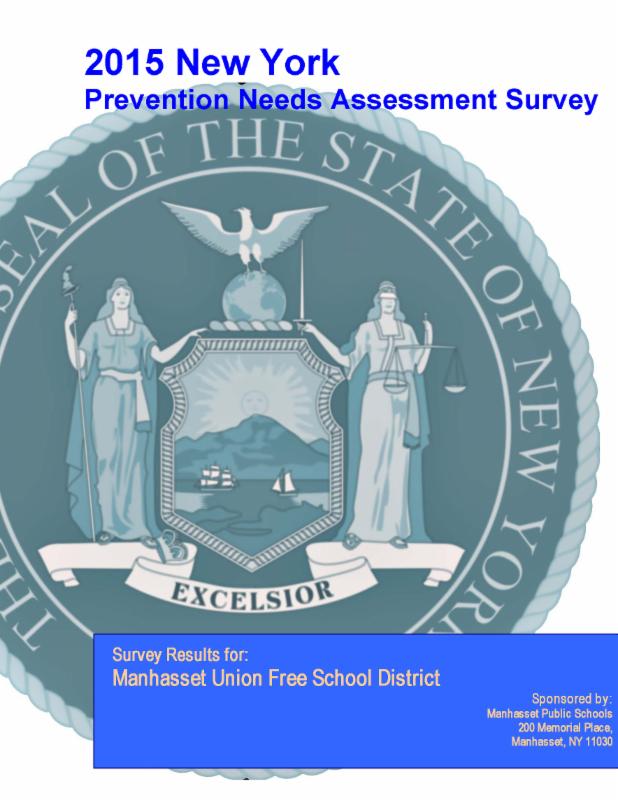
As a recipient of a Drug Free Communities Grant, Manhasset CASA and Manhasset Secondary School will also investigate local youth drug trends, understand root causes of drug use and develop targeted strategies to reduce youth substance abuse.
From January 20th through January 31st, students in grades 8, 10 and 12 will participate in the Bach Harrison Online Prevention Needs Assessment Survey which will assist Manhasset CASA to reduce youth substance abuse in the Manhasset Community. In addition, district parents will be invited to participate in an online parent survey which will provide CASA further feedback in developing family based prevention programs that reduce youth substance abuse.
For more information regarding Manhasset CASA's 2015 Bach Harrison Prevention Needs Assessment Survey Results,
CLICK HERE.
|
2017 Power of Parenting Series
Alcohol, Drugs & the Teen Brain

With today's teen binge drinking out of control as well as new recreational marijuana laws, it can be hard for parents to discuss why substance use is so dangerous to our teen's health and well-being.
 By popular demand, Dr. Stephen Dewey returns to our Power of Parenting Series on
Thursday, January 26th at 7:30 p.m. in the Manhasset Public Library Community Room to discuss how the teen brain is affected by underage drinking, marijuana and other drugs. Dewey, an Investigator at the Center for Behavioral & Molecular Imaging at the Feinstein Institute for Medical Research at Northwell Health, simply shows us what he sees everyday through his research!
This prevention education program is part of the Power of Parenting Series sponsored by Honorable Jack M. Martins, the Manhasset Public Library and Manhasset CASA.
|
Surgeon General: E-Cigarettes Public Health Concern
Manhasset Teens Self Report E-cigarette Use
E-cigarette products are now the most commonly used form of tobacco among youth in the United States, surpassing conventional tobacco products, including cigarettes, cigars, chewing tobacco, and hookahs.
In Manhasset High School, 12th grade students reported Past 30 Day Use of traditional tobacco products decreasing from 15.5% (2008) to 6.2% (2015) while their use of E-cigarettes was reported at 27.8% in 2015 (
First time Manhasset Secondary Students were surveyed for e-cigarettes is 2015
).
According to the Surgeon General Report, n
icotine exposure during adolescence can cause addiction and can harm the developing adolescent brain.
The report also notes key health effects of E-Cigarette use among U.S. youth and young adults:
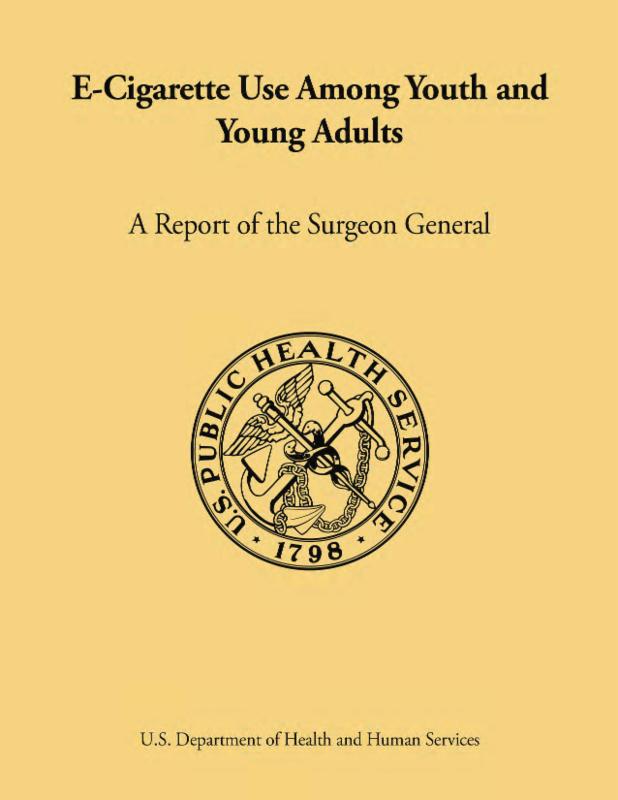
- E-cigarettes can expose users to several chemicals, including nicotine, carbonyl compounds, and volatile organic compounds, known to have adverse health effects. The health effects and potentially harmful doses of heated and aerosolized constituents of e-cigarette liquids, including solvents, flavorants, and toxicants, are not completely understood.
- E-cigarette aerosol is not harmless "water vapor," although it generally contains fewer toxicants than combustible tobacco products.
- Ingestion of e-cigarette liquids containing nicotine can cause acute toxicity and possibly death if the contents of refill cartridges or bottles containing nicotine are consumed.
In June 2016, the FDA extended its regulatory authority to cover all tobacco products, including vaporizers, vape pens, hookah pens, electronic cigarettes (E-Cigarettes), e-pipes, and all other Electronic Nicotine Delivery Systems (ENDS). FDA now regulates the manufacture, import, packaging, labeling, advertising, promotion, sale, and distribution of ENDS. This includes components and parts of ENDS* but excludes accessories. To learn more about E-cigarettes,
click here.
|
Treatment & Recovery Education in Manhasset
Free Family Education Series at Seafield Center
Residents who are impacted by addiction are invited to attend the Seafield Center's Family Education Series which runs weekly at 585 Plandome Road, Manhasset.
The free four session family program provides information regarding various aspects of addiction, treatment, therapy and codependency and enabling behaviors. For more information
, click here for Seafield's flyer
or contact Pedro Pereira, CASAC, Clinical Supervisor at (516) 812-9944.
|
|
STAY CONNECTED

|
|
|
|
|